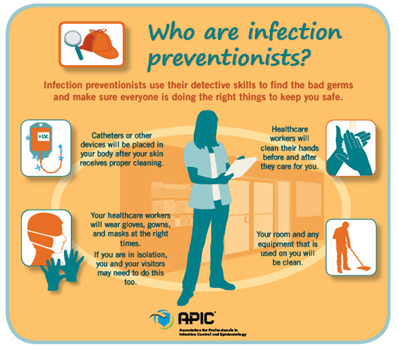Infectious diseases are caused by organisms such as bacteria, viruses, fungi, or parasites and can spread easily from person to person. Prevention is key in controlling the spread of infectious diseases, especially during times of outbreaks or pandemics. In this article, we will discuss some essential tips and practices that can help you prevent infectious diseases.
1. Hand Hygiene:
Proper hand hygiene is one of the most effective ways to prevent the spread of infectious diseases. It is important to wash your hands frequently with soap and water for at least 20 seconds, especially:
Before and after eating
Before and after using the bathroom
After coughing, sneezing, or blowing your nose
After being in public places
If soap and water are not available, use a hand sanitizer with at least 60% alcohol content.
2. Practice Respiratory Etiquette:
Respiratory droplets expelled when coughing or sneezing can carry infectious diseases. To prevent transmission:
Cover your mouth and nose with a tissue or your elbow when coughing or sneezing.
Dispose of used tissues properly.
Avoid close contact with people who have respiratory symptoms, such as coughing or sneezing.
These simple practices can help reduce the spread of respiratory infections.
3. Stay Vaccinated:
Vaccines are one of the most effective ways to prevent certain infectious diseases. Make sure you stay up to date on your immunizations, including:
Flu vaccine
Hepatitis A and B vaccines
Measles, mumps, and rubella (MMR) vaccine
Tetanus-diphtheria-pertussis vaccine
COVID-19 vaccine (during pandemics)
Consult with your healthcare provider to determine which vaccines are recommended based on your age, health, and specific circumstances.
4. Practice Food Safety:
Many infectious diseases can be transmitted through contaminated food or water. To prevent such infections:
Wash fruits and vegetables thoroughly before consumption.
Cook meat, poultry, and fish properly to kill any bacteria or parasites.
Avoid consuming raw or undercooked eggs and dairy products.
Drink safe water, and be cautious with local water sources when traveling.
By following proper food safety practices, you can greatly reduce your risk of foodborne illnesses.
5. Maintain Personal Hygiene:
Good personal hygiene habits can help prevent the spread of infectious diseases. Some important practices include:
Take regular showers or baths.
Brush your teeth twice daily and floss regularly.
Keep your fingernails trimmed and clean.
Wear clean and properly laundered clothes.
These habits help minimize the presence of harmful microbes on your body and reduce the risk of infection.
6. Avoid Touching Your Face:
Our hands come into contact with numerous surfaces throughout the day, making them potential carriers of infectious germs. Avoid touching your face, especially your eyes, nose, and mouth, as these areas provide entry points for viruses and bacteria.
7. Practice Safe Traveling:
When traveling, especially to areas with known outbreaks or high disease risk, take the following precautions:
Research and stay updated on any health advisories or travel warnings.
Consult a healthcare provider or travel clinic for necessary immunizations.
Practice good hygiene, such as frequent handwashing and avoiding close contact with sick individuals.
Avoid consuming raw or undercooked foods and drink safe water.
Use insect repellents and protective clothing to prevent vector-borne diseases like malaria or dengue fever.
By taking appropriate measures, you can reduce the risk of contracting infectious diseases during your travels.
8. Stay Informed:
It is crucial to stay up to date on the latest information regarding infectious diseases and follow guidance from reputable health organizations. Reliable sources such as the World Health Organization (WHO) or the Centers for Disease Control and Prevention (CDC) provide accurate information to help you make informed decisions and take necessary precautions.
Conclusion:
Preventing infectious diseases requires a combination of personal responsibility and adherence to best practices. By following the tips mentioned in this article, you can significantly reduce your risk of contracting and spreading infectious diseases. Remember, prevention is the most effective strategy to protect yourself and others, especially during times of outbreaks or pandemics.

